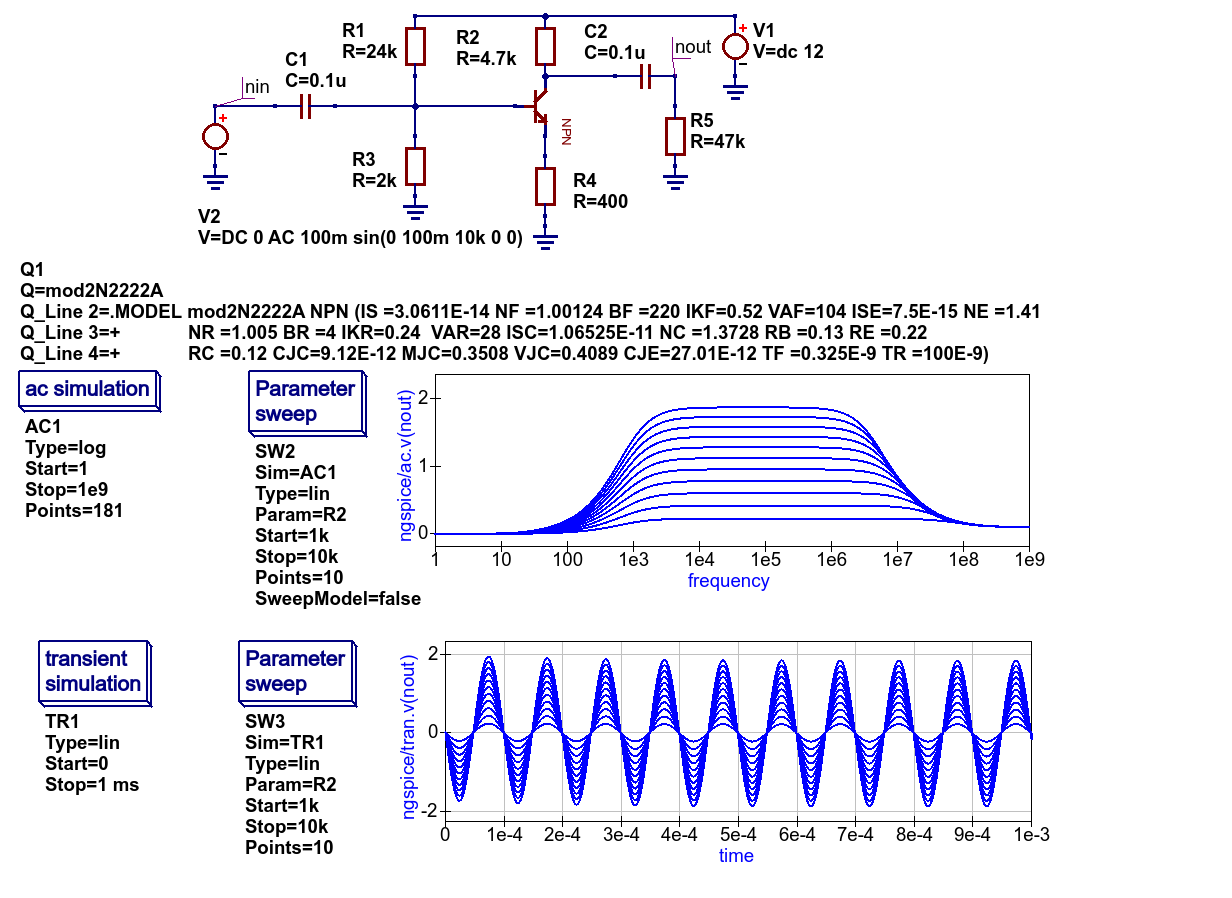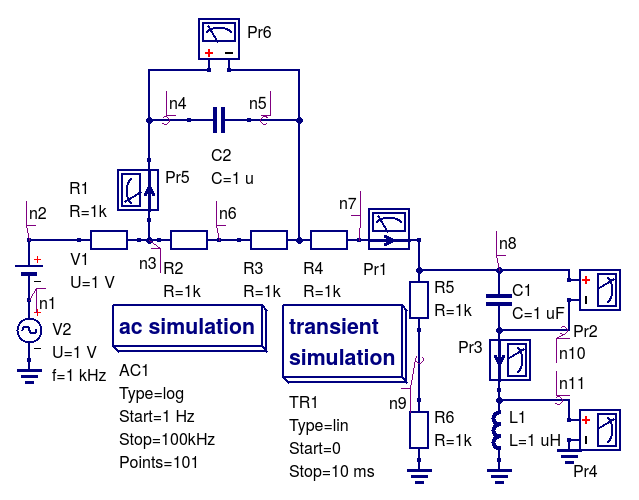
Tilsigurd liked Vacuum Robot Garage with Home Assistant.Tast's Robots liked DIY hobby servos quadruped robot.Steve Anderson has added a new log for Loki.



bjohn on Linux Fu: The Chrome OS Flex Virtualization.Matias on A Fast Linear Actuator Entirely In One PCB.rastersoft on Load Your Icebreakers, The 2022 Cyberdeck Contest Starts Now.Tracy on Perfect Photographs For PCB Reverse Engineering.David Davies-Day on Hackable $20 Modem Combines LTE And Pi Zero W2 Power.Supported elements: voltage source, current source, VCVS, CCCS, VCCS, CCVS, resistor, inductance (with inductive coupling), capacitance, complex impedance, RG-line, RGLC-line, Ampermeter, voltmeter, wattmeter, varmeter, phasemeter. Divide the circuit into elements, number the nodes, enter the netlist, press the button Go! and get the currents, voltages, power, readings of ammeters, voltmeters, wattmeters etc.
#QUCS SIMULATION SIMULATOR#
In SPICE, the calculation of this mode is not convenient, but for my simulator this is the native mode. When teaching theoretical electrical engineering, much attention is paid to the calculation of linear circuits of sinusoidal current in the steady state. This app may be used in teaching theoretical electrical engineering. My open-source SPICE-alike (text input) circuit simulator FoxySim – Web-application (written in Go) intended for online simulation DC & AC electric circuits.

#QUCS SIMULATION SOFTWARE#
Posted in Software Hacks Tagged analog circuit, circuit, integration, LTSpice, modeling, numpy, programming, python, simulation, SPICE Post navigation This project is definitely worth a look if you have any interest in signal processing (digital or analog) or even if you have never heard of SPICE before and want an easier way of simulating a circuit before prototyping one on a breadboard. SPICE programs aren’t without their clumsiness, and being able to write your own tools for manipulating circuits is a powerful tool. Basically, it allows you to “plug in” a graphical analog circuit of any design into a Python script and manipulate it easily, in any way needed. ’s latest project involves simulating filters in LTspice (a SPICE derivative) and then using Python/NumPy to both provide the input signal for the filter and process the output data from it. It also means it is straightforward enough to use with other software as well, like integrating LTspice with Python for some interesting signal processing circuit simulation. SPICE as a software tool has been around since the 70s, and its open source nature means there are more SPICE tools around now to count. Using SPICE to simulate an electrical circuit is a common enough practice in engineering that “SPICEing a circuit” is a perfectly valid phrase in the lexicon.


 0 kommentar(er)
0 kommentar(er)
